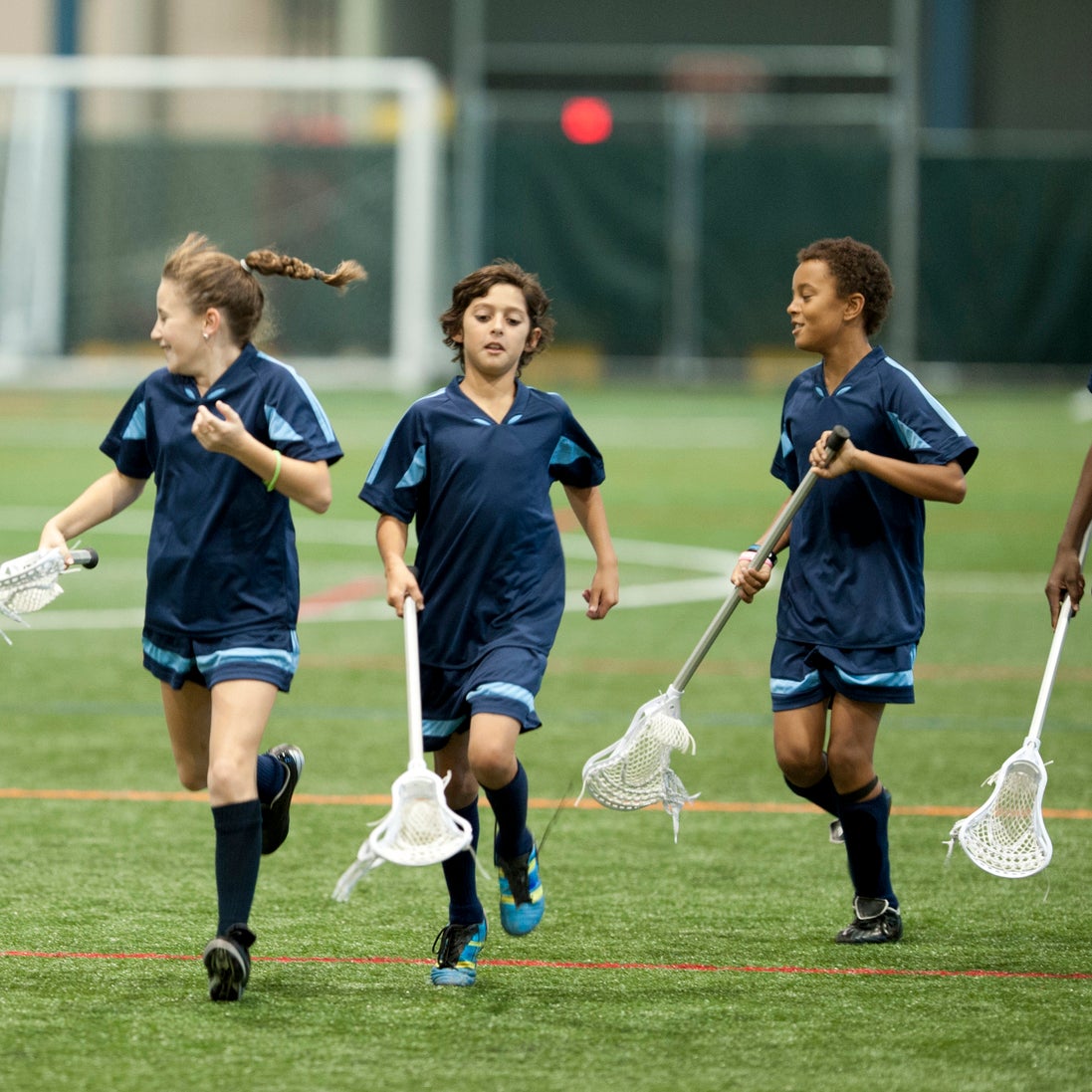This past Sunday, we took our eight-year-old daughter, Pippa, to her first lacrosse game, an hour away in Albuquerque. It was beautiful outside: sunny and cool with a brisk breeze. As we drove south, Pippa was giddy with excitement, while I looked longingly at the mountains. Sundays have always been our unofficial family day, reserved for spontaneous outdoor adventures like hiking, skiing, rafting, and riding bikes. It’s the one day a week when we tear ourselves away from scheduled activities and work deadlines (my husband, Steve, and I are both self-employed, so the work never really stops) to be together in nature.
As parents, Steve and I have tried to maintain a balanced, if wary, approach to team sports. We haven’t wanted to become that family, the one that’s constantly moving in different directions, dividing and conquering and spending hours in the car shuttling kids to games and practices, giving up precious adventure time for team time.
It’s a tricky balance. Steve and I both grew up playing team sports in public school—soccer and hockey for him, lacrosse for me—and benefited greatly. Being part of a team teaches valuable life skills, like collaboration, teamwork, and goal-setting. And it’s especially good for girls. According to a 2010 study of the , participation in team sports was linked to a 20 percent uptick in women’s education and a 40 percent rise in employment for women ages 25 to 34. A second study from the University of Chicago found that athletic involvement in Title IX sports was linked to a 7 percent lower risk for obesity. The shows that girls who play sports than those who don’t.
But as Steve and our six-year-old sat on the sidelines watching Pippa warm up for nearly an hour before not one but two games, I couldn’t help but wonder if what was beneficial for Pippa wasn’t somehow detrimental to us. The outing would eat five and a half hours from our day, and except for walking around the field, we were mostly stationary spectators; only Pippa would break a sweat.
Maybe I’ve now been a solo athlete too long—ultrarunning, mountain biking, skiing—but all I could think about was what we were giving up, not about what Pippa was gaining. “I don’t think I’m a team player anymore,” I whispered to Steve right before Pippa took to the field. This was only day one of what maybe, hopefully, will be a long and happy relationship with team sports, but already I needed an attitude adjustment. I needed to take one for the team.
Then Pippa started to play. Seeing how happy and focused she was tearing up and down the field, making plays and botching others, scoring a goal and getting called offsides, running strong and sure in her own body, stopping to tie her shoe (three times), all while grinning madly, I realized that what’s good for her is good for the rest of us.
With a little common sense, it’s not so hard to have your team sports and your adventure, too.
1. Limit Organized Sports to One Per Season
And avoid year-round sports, which have been shown to lead to burnout and injury. Experts agree—and studies back this up—that it’s best to let kids try lots of different sports and activities until they find their favorite. Specialization in one sport shouldn’t happen until high school.
2. Let Kids Pick Their Sport
That’s what educator Jessica Lahey advocated for in her New York Times ������ٲ���������,��. This gives kids ownership and autonomy over their decisions and schedule, which helps build resilience and competence.
3. Share Drive Time with Other Parents
And whenever possible, opt for local teams over traveling teams. The parents and siblings who aren’t playing can use the time to plot special one-on-one adventures.
4. Organize Weekend Pickup Games
You can play them at your neighborhood park or child’s school instead of registering for city leagues. Invite your child’s classmates, relatives, and family friends to play, too.
5. Bring a Frisbee or Bikes to Games
That way you can play on the sidelines while your child competes. You’ll all benefit from the exercise.
6. Don’t Be Afraid to Skip Games or Practices in Favor of Family ���ϳԹ���s
At least once in a while. An invitation to go camping, hiking, or rafting with other families or a get-together with extended relatives are totally valid reasons for bowing out of your team commitment. They’re also a great chance to talk about commitment, personal responsibility, flexibility, and decision making with your kids. Just make sure you give advance notice.
7. Leave One Day Free Each Week
Preferably it’s a day when parents don’t have to work. Use it to get outside as a family. Even for a simple walk.
8. Volunteer to Help
Whether the team needs another coach or chaperone, this gives you and your child a chance to be active together.
9. Double Up on the Fun
Try to plan an extra activity when your kid’s sports commitments take you to other towns or states. Researching adventures ahead of time makes it easier to tack a hike or bike ride onto the trip.
10. Share Childcare to Squeeze in ���ϳԹ���s
When we got home from the game, Steve and I were antsy to head out on the trails for a walk, but Pippa and her sister were too pooped to come along. So we called a friend to see if the girls could play while Steve and I snuck away for a quick hike. (Thank you, Elizabeth; it’s my turn next.) Sometimes all you need is an hour—and a little help from your friends—to reconnect in a meaningful way outside.


